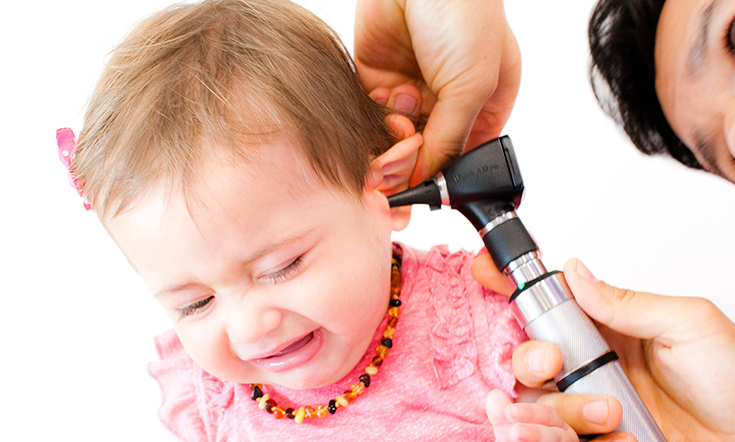

The Royal Australian College of General Practitioners (RACGP) has released new guidelines around managing ear infections in children. A Choosing Wisely Australia® initiative is encouraging parents to talk to their GPs about antibiotics and whether or not their child really needs a prescription.
With winter illnesses increasing in the colder weather, ear infections (including middle ear infection) are on the rise. It is important that parents understand that the majority of children with a middle ear infection will not need to be treated with antibiotics. A careful assessment by your GP will determine if the child requires antibiotics for a middle ear infection.
RACGP recommend that antibiotics should not be routinely used for ear infections for children between the ages of two and 12 years old. Pain from an ear infection can be managed by administering paracetamol (or other analgesic). Antibiotics do not reduce the pain associated with an ear infection and may cause other side effects such as diarrhoea.
Dr Frank Jones, President of the RACGP explains: “GPs understand the deep concern parents feel when their child is unwell or in pain, no parent—and no doctor—wants to see a child in pain. The best way to manage the pain associated with an ear infection is by giving simple analgesics (like paracetamol), carefully adhering to dosage guidelines according to body weight. Antibiotics will have no effect on easing pain and may in fact have unwarranted side effects like diarrhoea.”
Most ear infections will clear up on their own within a couple of days without the use of antibiotics. It is important to have this conversation with your doctor as antibiotic resistance is a growing worldwide health problem.
Dr Lynn Weekes, NPS MedicineWise CEO says “Using antibiotics when you don’t need them can contribute to bacterial resistance, both in the individual and the community…the more antibiotics we use, the more chances bacteria have to become resistant to them and as a result they will lose their power.”
RACGP recommends the following to help parents prevent ear infections:
- Parents should teach their children to blow their nose to get rid of mucus, rather than wiping it away.
- Getting in to the habit of washing hands helps prevent the spread of germs that carry the cold and flu viruses.
- If your child is unwell, limit their attendance at school or daycare so as not to expose others to their illness.
- Breastfeed your baby to protect against infection, or if your baby is bottle fed, feed them in an upright position.
- Avoid exposure to cigarette smoke as passive smoking is a risk factor for ear infections.
If you are worried, see your doctor for specific advice.






















